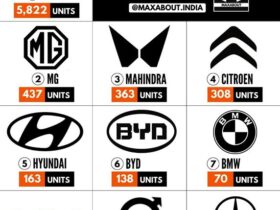The cycle industry encompasses a diverse array of products and services catering to transportation, fitness, and leisure activities. From traditional bicycles to electric bikes (e-bikes) and specialty cycles like mountain bikes and road bikes, the industry continues to evolve with technological advancements and shifting consumer preferences. Key trends include the rise of e-bikes, offering convenient and eco-friendly commuting options, and the growing interest in cycling as a fitness regimen and recreational pursuit. Sustainable practices such as bike-sharing programs and advocacy for cycling infrastructure further underscore the industry’s commitment to environmental stewardship. As urbanization increases and concerns about environmental impact grow, the cycle industry plays a crucial role in promoting healthier lifestyles and reducing carbon footprints through accessible and innovative transportation solutions.

The e-cycle industry, encompassing electric bicycles (e-bikes) and their variants, represents a transformative evolution within the broader cycle industry landscape. E-bikes combine traditional pedal power with electric motor assistance, offering riders enhanced speed, range, and accessibility compared to conventional bicycles. This innovation has revolutionized urban commuting, recreational cycling, and even professional sports, catering to a diverse spectrum of consumers seeking sustainable and efficient transportation solutions.
One of the defining characteristics of the e-cycle industry is its contribution to sustainable mobility. As cities worldwide grapple with congestion and environmental concerns, e-bikes provide a viable alternative to traditional vehicles, reducing carbon emissions and alleviating traffic congestion. The integration of electric propulsion systems in bicycles not only extends the range of commuting distances but also makes cycling accessible to a broader demographic, including older adults and individuals with mobility challenges.
Technological advancements have been pivotal in driving the growth of the e-cycle industry. Modern e-bikes feature lightweight frames, advanced battery technologies, and efficient motor systems that enhance performance while maintaining agility and maneuverability. Lithium-ion batteries, in particular, have revolutionized e-bike design by offering higher energy density, longer battery life, and faster charging times, thereby improving overall user experience and convenience.
Consumer adoption of e-bikes continues to soar globally, driven by factors such as rising urbanization, increased awareness of environmental sustainability, and improvements in cycling infrastructure. Governments and municipalities are incentivizing e-bike adoption through subsidies, tax incentives, and infrastructure investments, recognizing their role in promoting cleaner and healthier urban environments. Bike-sharing programs in major cities further facilitate access to e-bikes, encouraging residents and visitors alike to embrace sustainable transportation choices.
In addition to their utility in urban settings, e-bikes have gained popularity in recreational and touring applications. E-mountain bikes (e-MTBs) enable cyclists to conquer challenging terrain with greater ease and efficiency, expanding opportunities for outdoor exploration and adventure. Similarly, touring e-bikes are increasingly favored by enthusiasts seeking to cover longer distances and diverse landscapes without the physical strain associated with traditional touring bikes.
The economic impact of the e-cycle industry is significant, encompassing manufacturing, retail, tourism, and associated services. E-bike sales have surged in recent years, bolstering employment within the industry and driving innovation in e-bike design and technology. Tourist destinations and cycling-friendly regions benefit from e-bike tourism, attracting visitors who seek active and sustainable travel experiences.
From a competitive standpoint, the e-cycle industry has spurred innovation and collaboration among manufacturers, leading to advancements in battery efficiency, motor performance, and connectivity features. Integrated smart technologies, such as GPS navigation, fitness tracking apps, and Bluetooth connectivity, enhance the functionality and appeal of e-bikes, appealing to tech-savvy consumers seeking enhanced user experiences.
Despite its rapid growth and widespread adoption, the e-cycle industry faces challenges, including regulatory frameworks, infrastructure development, and consumer education. Regulatory standards for e-bikes vary globally, impacting market access and consumer confidence. Infrastructure investments in cycling lanes, charging stations, and secure parking facilities are essential to accommodate the growing demand for e-bikes and ensure safe and convenient urban mobility.
Looking ahead, the future of the e-cycle industry appears promising, with continued advancements in battery technology, lightweight materials, and connectivity solutions driving innovation. Industry stakeholders, including manufacturers, policymakers, and advocacy groups, collaborate to address challenges and capitalize on opportunities presented by e-bike adoption. As consumer preferences shift towards sustainable and active lifestyles, e-bikes are poised to play an increasingly integral role in shaping the future of urban mobility and global transportation systems.
In conclusion, the e-cycle industry represents a dynamic and transformative segment within the broader cycle industry, offering innovative solutions to urban mobility challenges while promoting environmental sustainability and active living. By combining the benefits of electric propulsion with the time-tested appeal of cycling, e-bikes empower individuals and communities to embrace cleaner, healthier, and more connected lifestyles. As technology advances and societal priorities evolve, the e-cycle industry continues to innovate and expand, driving progress towards greener and more sustainable urban futures around the world.


















The core of your writing while appearing agreeable at first, did not really sit properly with me after some time. Someplace within the sentences you actually managed to make me a believer but just for a very short while. I nevertheless have got a problem with your jumps in logic and you might do well to fill in all those gaps. In the event you actually can accomplish that, I will undoubtedly end up being impressed.
Thanks for sharing. I read many of your blog posts, cool, your blog is very good.
Thanks for sharing. I read many of your blog posts, cool, your blog is very good.